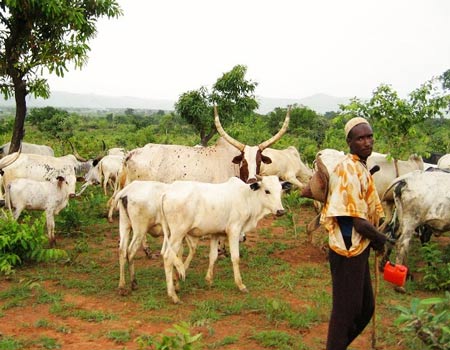Benue State government came out with the law with the aim to put a stop to conflicts between local farmers and herdsmen in the state.
Governor Samuel Ortom had claimed that about 3,000 people were killed within four years, since the crisis assumed dangerous dimension, while more than N94 billion worth of property had been destroyed.
The governor explained that the law was not against anybody, but to maintain peace among residents of the state.
However, the herdsmen, through their spokesman, Alahaji Garus Gololo, said the law was targeted at driving herdsmen out of the state, noting that they would leave Benue in anger.
Speaking via phone on Saturday, Gololo said that about 3,000 of 10,000 herdsmen have moved out of Benue as at yesterday, with about 15,000 cows.
He added that the herdsmen movement would be a gradual process, but maintained that in as much as they wanted peace to reign in the state, they would go out of the state in peace.
He stated that within the last few days the law came to effect, his members across the state had lost 36 cows due to lack of food to eat and water to drink.
He further said that the herdsmen, as at Friday, expended N17 million to provide food and water for millions of cows in the state.
Condemning herdsmen attacks on some communities in Logo Local Government Area of the state last Thursday, Gololo said he was yet to know the actual cause of the incident.
Though, the police spokesman in the state told our correspondent on phone that the crisis in Logo was different from previous ones, he said the herdsmen were on their way out of the area when they attacked and killed their victim at a fish pond.
“We have started moving out of Benue. As I speak with you, about 3,000 herdsmen have moved to neighbouring states in Nasarawa and Taraba.
“We have spent N17 million between November 1 till date to feed our cows in different places within the state. As l speak to you now, if care is not taken, about 300 cows would die today because we don’t have money to feed all the entire cows again. No water, no grass and nothing for the cattle to feed on,” Gololo stated.






